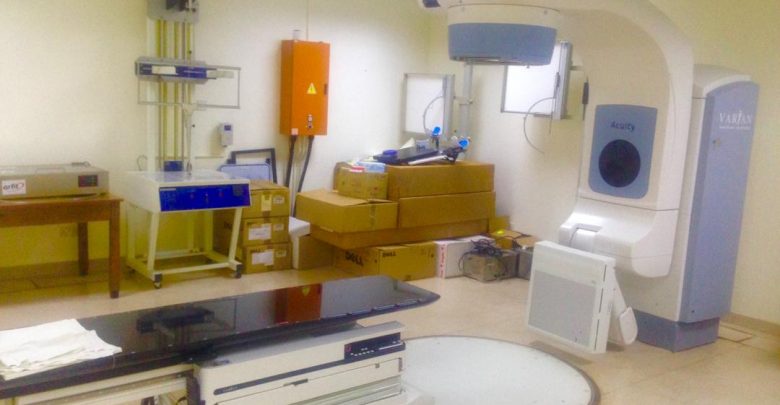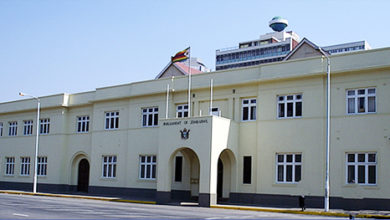Parly in shock over state of Cancer treatment services at govt hospitals

Parliament’s gender and development thematic committee expressed shock at the state of cancer treatment services in the country with radiotherapy machines at government hospitals broken down.
To make matters worse, the legislators were misinformed about the exact state of funding for cancer treatment and service delivery.
This emerged when the committee came to Bulawayo for a fact finding visit on cancer treatment service delivery at Mpilo Hospital Wednesday.
Before the visit to Mpilo, the committee was briefed in Harare that both Mpilo and Parirenyatwa Hospitals needed US$53 000 to repair their broken down radiotherapy machines.
Even the Ministry of Information, Publicity and Broadcasting services posted on social media that the US$53 000 needed was availed last week but the two major referral hospitals were failing to repair broken down radiotherapy machines as they could not move the funds due to sanctions.
However, this was not the case when the thematic committee toured Mpilo Hospital.
The oncology department at Mpilo said the hospital had been paying US$240 000 per annum to have the radiotherapy machines maintained by service provider.
Mpilo is also constructing a powerhouse at the institution to address power shortages as the radiotherapy machine developed a fault after power outages last year in November.
Also read: http://cite.org.zw/mpilo-moves-to-solve-power-challenges/
The hospital has two radiotherapy machines that were acquired in 2012 and is yet to install the other machines as the department was undergoing renovations.
Led by its chairperson Senator Siphiwe Ncube, other members Chief Chikwakwa, Chief Nhema, Violent Mokwetsi, Helen Zevera and Tapfumaneyi Wunganai quizzed the hospital authorities about the discrepancies in the varying amounts needed to fix the radiotherapy machines
Mpilo’s Hospital’s Oncologist Dr Tatenda Chingonzoh explained that the committee had to understand the type of contract the institution had entered with the supplier of the radiotherapy machines.
“The US$53 000 mentioned by officials in Harare is to repair the machines on demand at any time but Mpilo is on a service contract paying US$240 000 per annum, meaning if there’s a fault the engineers will come here to fix and buy the spare parts. Which is why we are now pushing for a longer term solution to make sure the radiotherapy machines stay up instead of repairing them now and again as that would always cost us US$53 000 each time,” she said.
Mpilo Operations Director, Joe Charangwa, explained to the committee that the radiotherapy machines were bought from a manufacturer called Varian based in Switzerland, which had its agent, Techmed in Africa to service the sub Saharan region.
“Techmed was the company agent we were dealing with on behalf of Varian on a service contract we entered in around 2017 costing the $240 000 per annum. Once we paid that amount, Techmed would come for regular servicing and deal with any breakdowns. If we did not opt for this service contract, it meant we would call Techmed on demand if the machines broke down. Techmed would come assess, advise us what we have to procure then they can fix the machines but that was expensive, which is why we opted for the service contract. This ran from 2017 into part of 2018,” he said.
Charangwa added that the hospital then decided to deal directly with the manufacturer, who agreed but on condition that they deal with power inconsistencies that contributed to the breakdown of the lifesaving machines.
“Varian stated we had to buy an Uninterrupted Power Supply (UPS) and build a room to house the system. The UPS was purchased for $108 000 and we are now putting up a structure for it. Once this is up and installed, Varian will come and fix the machines. This will be a longer lasting solution to the machines breaking down and since we are now dealing with supplier, the service contract ought to be cheaper than the US$240 000 we paid before,” he said.
Dr Chingozoh, who is one of the only two oncologists in Bulawayo, buttressed it was more detrimental to start a cancer patient on radiotherapy and then stop treatment because the machine had broken down.
“Once we kill cancer cells a little and that is interrupted, the cells will be more aggressive and this is more dangerous than starting treatment at all, which is why we require a permanent solution to the power outages,” she said.





